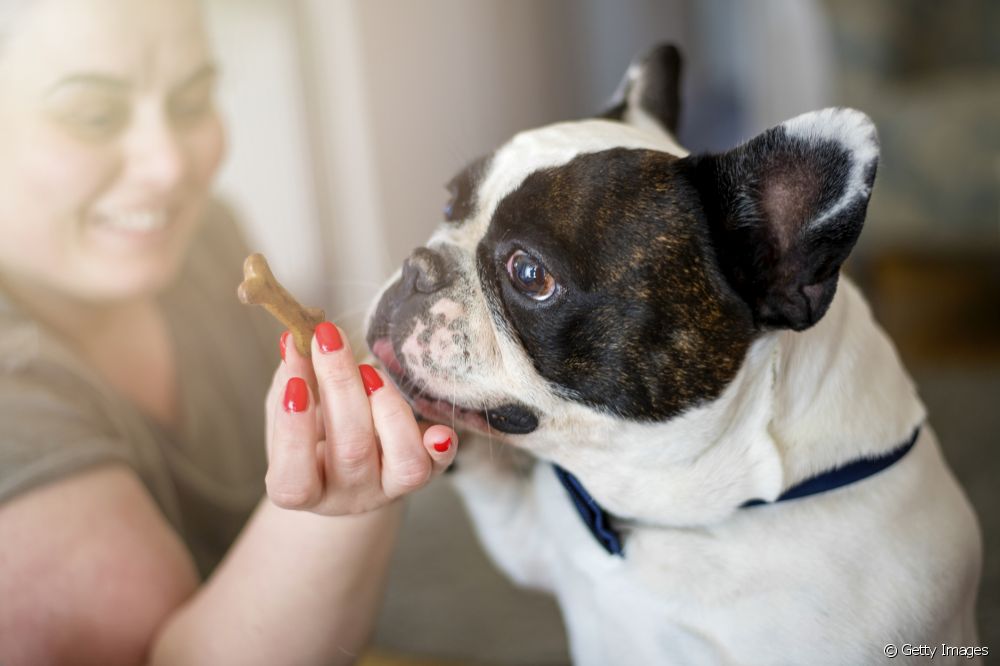How to fatten a dog without compromising his health?

Table of contents
One problem that many pet parents face is canine obesity. On the other hand, dogs that are too thin or have gone through severe malnutrition also need attention, as the lack of proper nutrition can leave them vulnerable to various diseases and ailments. So how to make the dog put on weight to have a healthy weight without compromising his organism? Even if this is anIn order to understand the main causes of weight loss in dogs and how to make dogs fat, we have prepared an article with some important information and tips on the subject.
"My dog is very thin, what can it be?"
Many factors can cause a dog to lose weight excessively. One of them is the lack of a balanced diet with the important nutrients for the puppy - which does not necessarily have to do with the quality of the food, but with the specifications of it. That is, a food for small dogs should never be offered to a large dog and vice versa, because the values of the food are not the same.nutritional value of each of them are quite different.
See_also: Why does your cat always wake you up by meowing in the early hours?Another point that can influence this situation is when the dog gets sick. Many health problems have as one of the main symptoms apathy and lack of appetite, leading the animal to eat less than before, which makes it thinner. This can happen because the dog feels a lot of pain and cannot eat properly, or because the disease in question consumes a lot of energy from the bodyof the pet, triggering abnormal weight loss.

How to fatten a dog in a healthy way?
After observing that the dog has suddenly lost weight, many owners ask themselves: "how to make my dog gain weight without harming him?" The answer to this will depend mainly on a clinical analysis by the animal's veterinarian, who will find out what caused the condition in the dog and what is the best form of treatment. However, in the absence of diseases, somePossible solutions to make the animal gain weight are:
1) Choose a quality food according to the age and size of the dog.
The most recommended pet foods are Premium and Super Premium, because they have a higher nutritional quality and promote greater satiety for dogs. As already mentioned, it is also important to choose a pet food that meets the age and size of the animal.
See_also: Surgical dog suit or Elizabethan collar after neutering? Understand the differences of each option2) Observe the puppy's energy level and, if necessary, increase the frequency of meals.
A dog that spends a lot of energy needs to replenish nutrients and minerals more often than a dog that moves little. Therefore, it is important to observe if this is the case for your dog and, if so, it is worth increasing the frequency of meals (without exaggerating too much in quantity so as not to cause overweight in the animal). So, instead of feeding the dog twice a day, the tutorcan be divided up to four times a day, but without increasing the amount offered too much.
3) Make the food tastier for the dog
Moistening the dry food is a good way to make the food more attractive to the dog. In addition, it is also worth adding some snacks to the dog's routine, but without exaggeration so as not to make the puppy unaccustomed. Giving cooked meats or offering different foods, such as eggs, can help - but it is important to always be aware of what the dog can and cannot eat.
4) Write down the dog's weight and meals every day in a notebook
This is the best way to know if the dog is gaining weight as expected. This notebook should function as a kind of food diary: the tutor needs to write down everything the dog consumes, from snacks to the food that is offered on a daily basis. If nothing changes or the dog continues to lose weight, it is worth consulting a veterinarian specializing in animal nutrition to seek alternativesof food supplementation.

